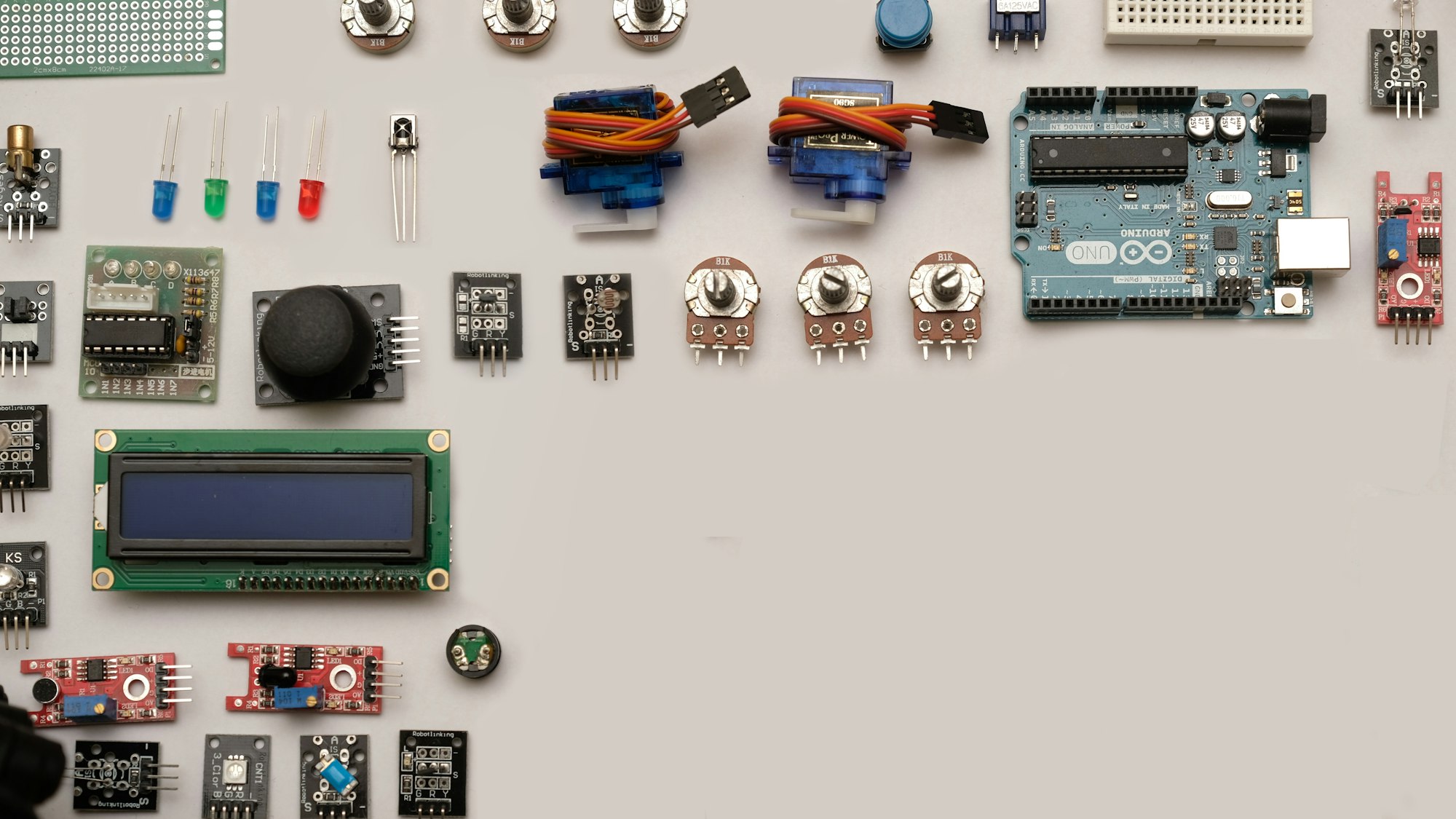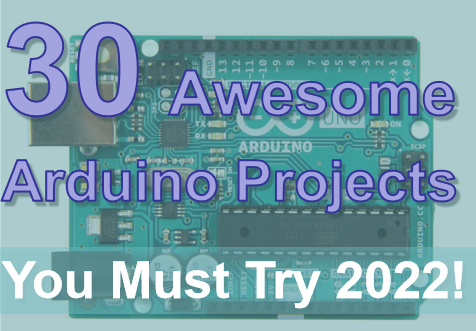Getting Started with Robotics

Robotics is a fascinating field that combines electronics, mechanics, and programming to create intelligent machines. Most of these machines are used to automate repetitive tasks such as factory assembly and crop harvesting.
One of the best ways to start learning robotics is by creating projects that you're interested in. I highly suggest starting with an Arduino board. You can think of an Arduino board as the "brain" of the robot. You can instruct it to perform various tasks.
Before heading on to the next section, take a look at some projects that you might be interested in.

Now that you have a few projects in mind, we need to plan how we're going to build each project. Think of a project that you're most interested in and let's start from there.
Materials
To build the project, you will need to have the materials required to build it. Most of these materials are must-have common electronic components. It's usually best to buy those sold as a kit to save your time and money. The kits contain the very common components and are generally cheaper than buying these components individually. Since you're just starting out, I recommend only buying the items marked with (Must Have). The total cost should be around $50 or less.
Board Kit (Must Have)
- This kit contains the Arduino Uno board, a breadboard, some wires, resistors, and small led lights.
Shopee PH: https://shopee.ph/wenkai.ph/4057448834
Amazon: https://www.amazon.com/ELEGOO-Starter-Tutorial-Compatible-Official/dp/B01DGD2GAO
AliExpress: https://www.aliexpress.com/item/1005004904450418.html
Sensor Kit (Must Have)
- This kit contains common sensors that the you will connect to the Arduino board. Some common sensors are temperature sensors, distance sensors, and PIR sensors (often used for human motion detection).
Shopee PH: https://shopee.ph/product/201062777/6512894960
Amazon: https://www.amazon.com/kuman-K5-USFor-Raspberry-Projects-Tutorials/dp/B016D5L5KE/
AliExpress: https://www.aliexpress.com/item/33010384013.html
Electronic Tools
- Robotics will require you to tinker with electronics a lot which means it is essential to have the right tools for the job
Multimeter (Must Have)
A multimeter can measure voltage, resistance, current, and many more things. This is a must have.
Refrain from buying cheap multimeters because it's not safe especially when you're working with mains voltage
If you're not going to work with mains voltage (110V or 240V), I suggest starting with the Aneng AN8008 multimeter. (Shopee) (Amazon) (AliExpress)
If you're going to work with mains voltage, you will have to spend a lot more. I recommend buying the fluke multimeters.
Soldering Station and Accessories
You will eventually need to solder in some of your projects. At some point, you will have to build a permanent circuit or encounter an electronic component that doesn't come with header pins, requiring you to solder them in place. To start soldering, you would need a (soldering station or soldering iron) and a solder lead. The rest of the materials are optional
Soldering Station or Portable Soldering Iron
Refrain from buying dirt-cheap soldering irons. These $1-2 soldering irons easily break and are safety hazards
Solder Lead
Try to get the lead-free solder lead since it's fumes are less poisonous.
Helping Hands
These are quite useful. They can hold the components you want to solder in place.
Other optional accessories: Solder holder, solder vacuum pump, solder wick, solder flux, cleaning sponge, etc.
Some other tools
These tools are optional. Only buy them when you need them:
- Wire Stripper
- Wire Cutter
- Screwdrivers and screws
- Bench Power supply
- Pliers
- Hot glue gun
- 3D Printer
- Oscilloscope
Other Electronic Components
Some projects will need to have more components than the ones provided by the arduino kits. I'll list some of the components that you might need:
- RFID Reader + RFID Cards
- Buck Converter (Voltage Step down converter)
- Boost Converter (Voltage Step up converter)
- Diodes
- Mosfets or Transistors
- Perfboards
- Relays
- Servo Motors or DC Motors or Stepper Motors
- LCD Displays
- Solenoid Lock
- Bluetooth or RF module (Receiver and Transceiver)
- Water pump
- NodeMCU / Raspberry Pi
Electronics Knowledge
It's alright if you don't have a lot of electrical knowledge. In fact, most people start out with very basic knowledge about electricity. You could start with just an understanding of voltage, resistance, and current as well as knowledge of series and parallel circuits. If you don't understand any of these, check these videos out:
Diving Deeper
Once you've got enough knowledge about electricity, let's understand how an essential component – a breadboard – works by watching this video:
There are a few more resources that you might want to take a look at:
Simple Projects
All these knowledge gained is useless unless you know how to apply them. Let's start with simple projects and progress from there. I recommend reading these project handbooks and start with the led circuits:
Other Resources
These are other great resources that can help you get started:
- You can learn Arduino in 15 minutes
- A tour of the arduino uno board
- Arduino Course for Beginners (FreeCodeCamp)

